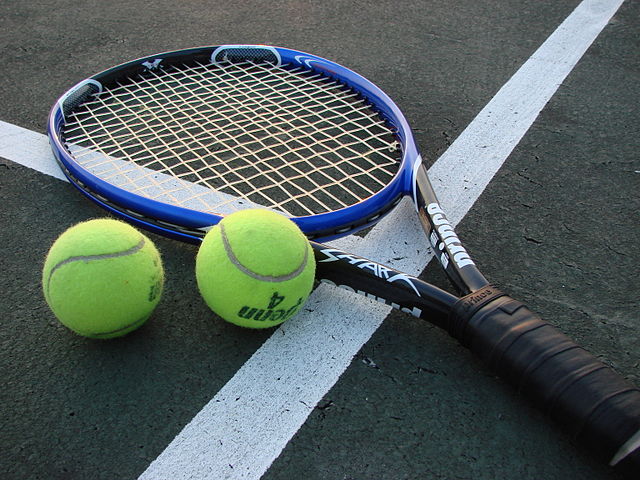All You Need is Egg

Love-15-30-40. If you’ve played tennis or watched even a handful of matches, you know that to be the game’s basic scoring system. And you probably think it makes no sense whatsoever. If you’re counting by fifteens — which is rare in the first place — you’d hit 45, not 40. And “love” isn’t a number at all. But there they are. There’s a good amount of debate as to why, but the most likely explanation has to do with a weird confluence of eggs, English, clocks, and an inability to divide an odd number by two without a resulting remainder.
Let’s start with the eggs, or, more accurately, the egg.
Eggs are, of course, oval shaped, much like the number zero. And in a few sports, they’re used as such — “goose egg” is common in American sports, and “duck,” short for “duck’s egg,” is common in cricket. Tennis may be an addition to the list. The sport most likely dates back to 12th century France, and, as such, many of the rules and much of the terminology has been carried forward since. The French term for “the egg” is “l’oeuf,” which, if you’re not a French speaker, sounds a lot like the word “love.” It is likely that a series of English speakers simply replaced the French word with its English homophone.
As for the actual numbers? Certainty as to their origin has been lost to antiquity, but the most likely explanation involves a pretty simple way to keep score: clock faces. The first point would earn you one quarter of a revolution, or 15 (minutes or seconds), the second point moves you to 30, and the third to 45. When the game ended, both clocks would be reset to the top. Easy — except that tennis games have to be won by two or more points. If both players were on a 45, then what? Even moving the hand half-way wouldn’t work, as 60 minus 45 is 15, which is not divisible by two.
The inelegant solution? Move 45 to 40. When the players tied at 40-40 (“deuce”), the next point would be worth 10, moving the clock to 50. If the same player earned the subsequent point, he or she would get another ten points and win the game. If not, his or her clock would be reset to 40, and the players would be deadlocked at deuce again.
There are alternative theories for both oddities, and given how far back in time the scoring system’s origins lie, we’ll never know for sure if the ones offered above are correct. But given what we do know, these seem most likely to be correct.
Bonus fact: Scuba (which, by the way, was originally an acronym — “self-contained underwater breathing apparatus”) dive sixty feet below the water’s surface and crack open an egg. What happens to it? As seen here, not a whole lot.
From the Archives: Tennis Shoes: John Pius Boland won the first modern Olympics’ gold medal in tennis, despite an obvious lack of preparation.
Related: A tennis clock. Almost certainly not what they used back in the 12th century. (Okay, okay, no “almost” about it.)

Leave a comment